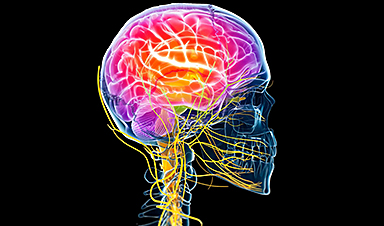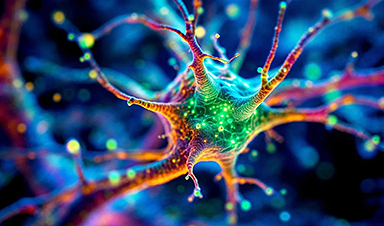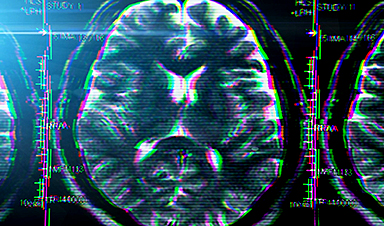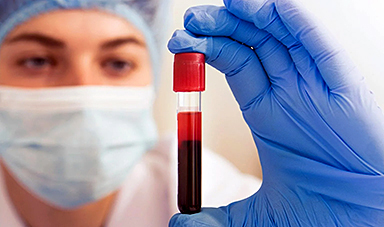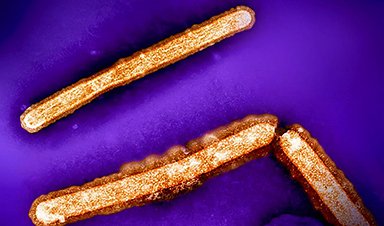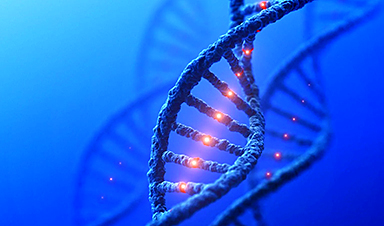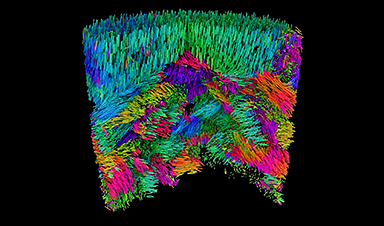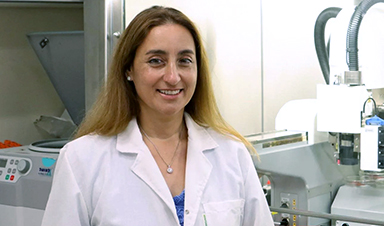Researchers from the University of Liverpool have shown the potential of repurposing an existing and cheap drug into a long-acting injectable therapy that could be used to treat Covid-19.
In a paper published in the journal Nanoscale, researchers from the University’s Centre of Excellence for Long-acting Therapeutics (CELT) demonstrate the nanoparticle formulation of niclosamide, a highly insoluble drug compound, as a scalable long-acting injectable antiviral candidate.
The team started repurposing and reformulating identified drug compounds with the potential for COVID-19 therapy candidates within weeks of the first lockdown. Niclosamide is just one of the drug compounds identified and has been shown to be highly effective against SARS-CoV-2 in a number of laboratory studies.
Using their expertise in the fields of materials chemistry, long-acting drug delivery and pharmacology, CELT scientists used nanoprecipitation to form redispersible solid drug nanoparticle formulations of niclosamide that can be stored as solids, reconstituted with water and utilised as long acting injectables. Their research has demonstrated sustained circulating drug concentrations may be maintained for the duration of early infection after a single injection.
CELT is co-directed by pharmacologist Professor Andrew Owen and materials chemist Professor Steve Rannard at the University of Liverpool.
Professor Steve Rannard said: “Repurposing drug compounds is much more than using existing medicines for a new disease. The existing active drug compound needs to be shown to be active at a significant level, then reformulated to address new challenges. The conventional route of administration may also not be relevant and modifying the way the patient receives the drug compound is highly critical to efficacy. Niclosamide is an ideal candidate to be taken forward as a potential long acting injectable therapeutic to treat Covid-19.
“This is still in early-stage development but the CELT team are currently working with a contract manufacturing organisation to take this forward towards scale up and clinical manufacture. This work is progressing well and if successful, human trials would be next. We envisage a future `Test-and-Treat’ scenario where infected people are treated at the point of diagnosis with the full course of therapy in one injection.”
Professor Andrew Owen said: “Repurposing of medicines for SARS-CoV-2 has yielded mixed results, with some clear successes for immunomodulatory drugs such as dexamethasone, and work underway to repurpose drugs like favipiravir and molnupiravir that were designed for other viruses.
“The ultimate utility of our long-acting injectable can only be determined in adequately powered and well controlled randomised clinical trials but unlike other drugs that have been explored for repurposing niclosamide target concentrations may be achievable in humans. The formulation has shown great promise in preclinical studies at a time when it is increasingly evident that drugs are urgently required to compliment the vaccines.
“A global pandemic requires a global solution, and it is critical that interventions are available to everyone and not to the privileged few. Accordingly, we are currently working to remove obstacles to availability in low- and middle-income countries to ensure equitable access if clinical success is ultimately demonstrated.”
Image Credit: Getty
Post by Amanda Scott, NA CEO. Follow her on twitter @tantriclens
Thanks to Heinz V. Hoenen. Follow him on twitter: @HeinzVHoenen
News
According to Researchers, Your Breathing Patterns Could Hold the Key to Better Memory
Breathing synchronizes brain waves that support memory consolidation. A new study from Northwestern Medicine reports that, much like a conductor harmonizes various instruments in an orchestra to create a symphony, breathing synchronizes hippocampal brain waves to [...]
The Hidden Culprit Behind Alzheimer’s Revealed: Microglia Under the Microscope
Researchers at the CUNY Graduate Center have made a groundbreaking discovery in Alzheimer’s disease research, identifying a critical link between cellular stress in the brain and disease progression. Their study focuses on microglia, the brain’s immune [...]
“Mirror Bacteria” Warning: A New Kind of Life Could Pose a Global Threat
Mirror life, a concept involving synthetic organisms with reversed molecular structures, carries significant risks despite its potential for medical advancements. Experts warn that mirror bacteria could escape natural biological controls, potentially evolving to exploit [...]
Lingering Viral Fragments: The Hidden Cause of Long COVID
Long COVID, affecting 5-10% of COVID-19 patients, might be caused by the enduring presence of the virus in the body. Research suggests that viral fragments, possibly live, linger and lead to symptoms. Addressing this involves antiviral treatments, enhanced [...]
Hidden Scars: How COVID Lockdowns Altered Teen Brains Forever
Research from the University of Washington revealed that COVID-19 lockdowns led to accelerated cortical thinning in adolescents, impacting brain development significantly. This effect was more pronounced in females than males, raising concerns about long-term brain health. The study [...]
Simple Blood Test To Detect Dementia Before Symptoms Appear
UCLA researchers have identified placental growth factor (PlGF) as a potential blood biomarker for early detection of cognitive impairment and dementia. High PlGF levels correlate with increased vascular permeability, suggesting its role in the development [...]
Investing Goldman Sachs asks ‘Is curing patients a sustainable business model?’
Goldman Sachs analysts attempted to address a touchy subject for biotech companies, especially those involved in the pioneering “gene therapy” treatment: cures could be bad for business in the long run. “Is curing patients [...]
The risks of reversed chirality: Study highlights dangers of mirror organisms
A groundbreaking study evaluates the feasibility, risks, and ethical considerations of creating mirror bacteria with reversed chirality, highlighting potential threats to health and ecosystems. In a recent study published in Science, a team of researchers [...]
Alarming Mutation in H5N1 Virus Raises Pandemic Red Flags
NIH-funded study concludes that the risk of human infection remains low A recent study published in Science and funded by the National Institutes of Health (NIH) has found that a single alteration in a protein on the surface [...]
Scientists Discover Genetic Changes Linked to Autism, Schizophrenia
The Tbx1 gene influences brain volume and social behavior in autism and schizophrenia, with its deficiency linked to amygdala shrinkage and impaired social incentive evaluation. A study published in Molecular Psychiatry has linked changes in brain [...]
How much permafrost will melt this century, and where will its carbon go?
Among the many things global warming will be melting this century—sea ice, land glaciers and tourist businesses in seaside towns across the world—is permafrost. Lying underneath 15% of the northern hemisphere, permafrost consists of [...]
A Physics Discovery So Strange It’s Changing Quantum Theory
MIT physicists surprised to discover electrons in pentalayer graphene can exhibit fractional charge. New theoretical research from MIT physicists explains how it could work, suggesting that electron interactions in confined two-dimensional spaces lead to novel quantum states, [...]
Inside the Nano-Universe: New 3D X-Ray Imaging Transforms Material Science
A cutting-edge X-ray method reveals the 3D orientation of nanoscale material structures, offering fresh insights into their functionality. Researchers at the Swiss Light Source (SLS) have developed a groundbreaking technique called X-ray linear dichroic orientation tomography [...]
X-chromosome study reveals hidden genetic links to Alzheimer’s disease
Despite decades of research, the X-chromosome’s impact on Alzheimer’s was largely ignored until now. Explore how seven newly discovered genetic loci could revolutionize our understanding of the disease. Conventional investigations of the genetic contributors [...]
The Unresolved Puzzle of Long COVID: 30% of Young People Still Suffer After Two Years
A UCL study found that 70% of young people with long Covid recovered within 24 months, but recovery was less likely among older teenagers, females, and those from deprived backgrounds. Researchers emphasized the need [...]
Needle-Free: New Nano-Vaccine Effective Against All COVID-19 Variants
A new nano-vaccine developed by TAU and the University of Lisbon offers a needle-free, room-temperature-storable solution against COVID-19, targeting all key variants effectively. Professor Ronit Satchi-Fainaro’s lab at Tel Aviv University’s Faculty of Medical and [...]

